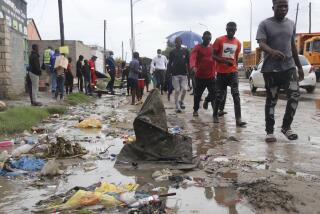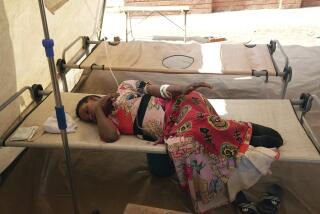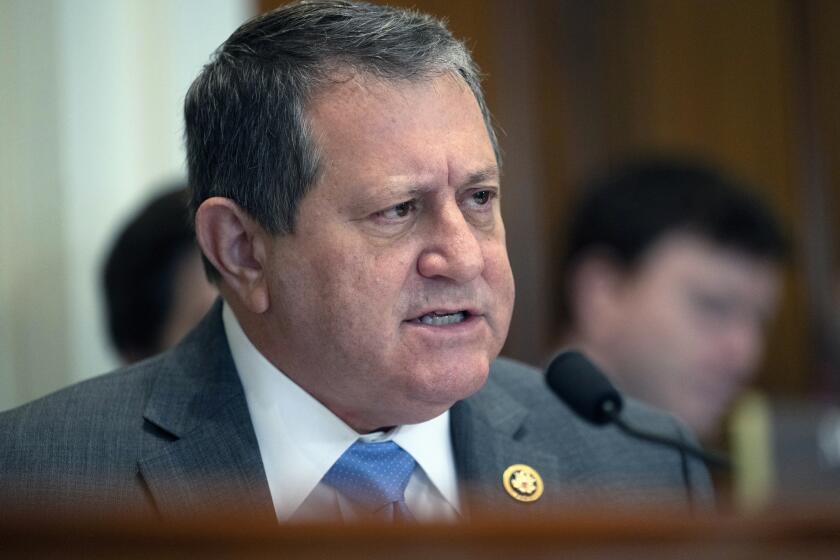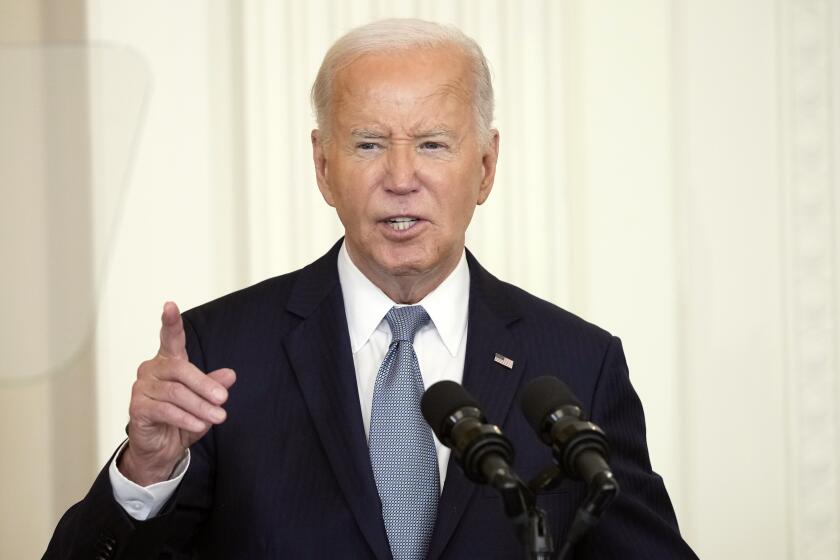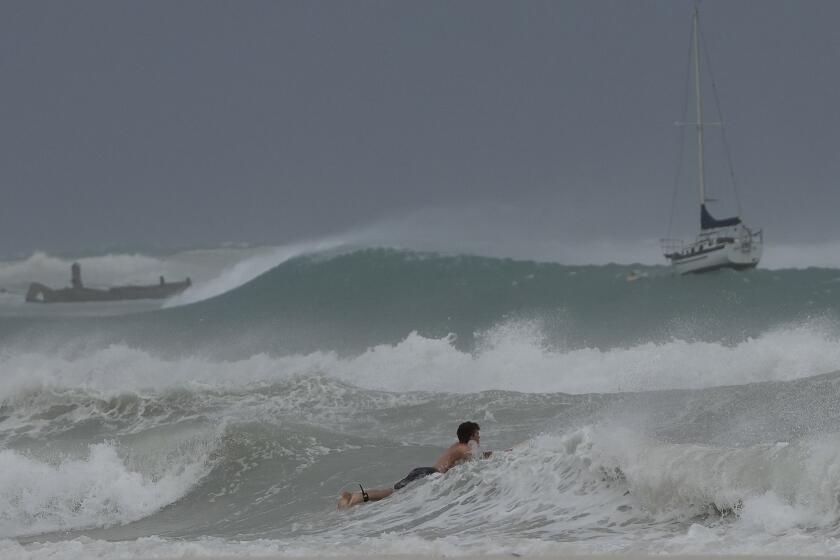As Ebola virus spreads in West Africa, some blame health workers
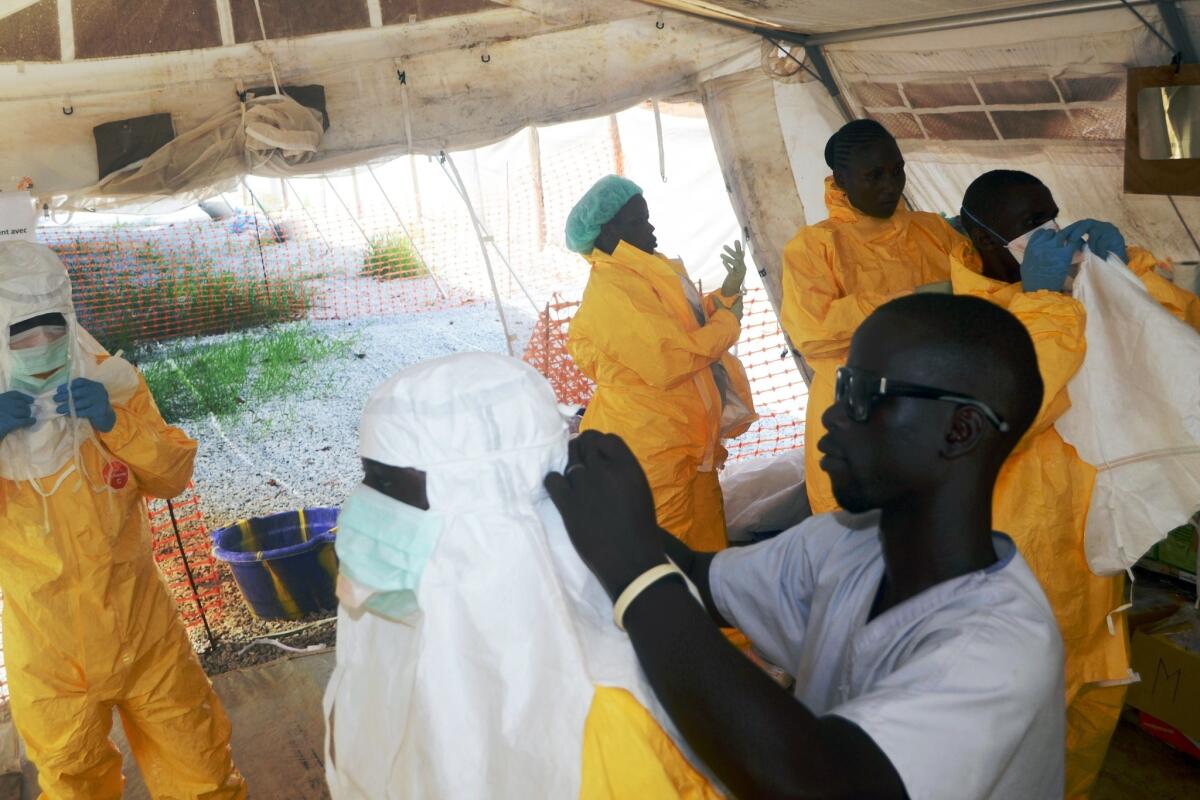
The Ebola virus would be terrifying no matter where it struck: It’s a disease with no cure that causes headaches and fever, severe diarrhea, vomiting and bleeding and has been known to kill up to 90% of its victims.
But in a corner of West Africa, where the disease took hold in recent months, traditional beliefs and superstitions have complicated efforts to prevent the illness. Some communities blame the disease’s emergence on those who have gone there to help — medical staff in alien-looking full-body protection suits and masks.
Others do not believe the disease exists at all, but blame curses or witchery when a loved one falls ill.
“It’s a very mysterious and extremely frightening disease,” Bart Janssens, the Brussels-based director of operations for Doctors Without Borders, said in a phone interview Thursday. “It would create fear in any community.”
There are 20 villages in southern Guinea where Doctors Without Borders, the main humanitarian agency fighting the crisis, can no longer go because of deep hostility toward healthcare workers.
“A worrying issue is that because of the lack of understanding of the disease there’s a real problem in communities in southern Guinea with growing hostility towards any foreigners. And this is really due to a lack of effort to explain well enough the reality of the disease,” Janssens said.
The Red Cross on Wednesday announced it had been forced to suspend activities in southeast Guinea after its health workers were surrounded by a group of men with knives, threatened, and blamed for causing the disease.
Janssens said his agency, which has deployed 300 staff members and sent in 40 tons of equipment, including tents and beds for isolation wards, had reached the limit of what it could do.
The illness, which is spread through contact with bodily fluids, initially struck an area near the city of Gueckedou in Guinea, a major trading hub near the border of Sierra Leone and Liberia. It has spread rapidly to all three countries, killing 467 people in 759 known cases, according to WHO figures released Monday, making it the deadliest outbreak in history. It is also unprecedented in its geographical spread according to WHO officials. Janssens said there were more than 60 outbreak sites.
Other issues that have made it difficult to prevent the spread of the disease include a lack of resources to fight the illness, weak health systems in affected countries and the fact that it broke out near a transport hub. Infected people tend to travel through the region to other areas, making it difficult to contain the outbreak.
“There needs to be more resources to provide more treatment centers and more communication and education about the virus,” Janssens said.
The WHO this week called a crisis meeting of health officials from Guinea, Sierra Leone and Liberia, with officials from neighboring countries including Ghana, Mali, Ivory Coast, Gambia, Guinea-Bissau, Democratic Republic of Congo, Senegal and Uganda also present. Humanitarian agencies also attended the meeting Wednesday and Thursday in Accra, Ghana.
Janssens said the key to fighting the disease was to get officials, traditional leaders and all influential people in affected countries to send out a message to combat superstition and mistrust, and to convey how important it was for infected people to seek treatment.
Officials say there are dozens of cases of people known to be infected who have run away or evaded treatment centers. Dr. Amara Jambai, Sierra Leone’s director of disease prevention and control told Reuters that 57 people with the disease, or suspected cases, were “missing,” having fled or gone into hiding.
Sierra Leone and Liberia have made it a criminal offense to hide people with symptoms of the disease, and posters urge anyone suffering symptoms to report for treatment.
Affected communities are also reluctant to relinquish long held burial rites — such as washing the bodies of loved ones before burial, which may spread the illness. For those grieving loved ones, it’s almost unthinkable to allow health workers in protective suits to carry out burials.
Jeremy Farrar of the Wellcome Trust, a humanitarian organization focused on improving healthcare in developing countries, told Reuters on Wednesday that patients should be offered experimental drugs. Although the death rate in previous outbreaks in Africa has reached 90%, the current outbreak has killed about 60% of known infected patients. Those entering treatment centers do not get medicine, but they are rehydrated with medical drips.
Janssens said Farrar’s suggestion “was a bit of a challenging idea, but an interesting one” that raised practical and ethical questions.
“The only treatments that are known to possibly have some effect are in their very early stages of development so, of course, practically and even ethically, it’s a bit complicated to bring these treatments on a wide scale,” he said. “Why would we consider it here? Because it’s a disease with such a high mortality rate. It could be considered as an extreme emergency measure.”
More to Read
Start your day right
Sign up for Essential California for news, features and recommendations from the L.A. Times and beyond in your inbox six days a week.
You may occasionally receive promotional content from the Los Angeles Times.

